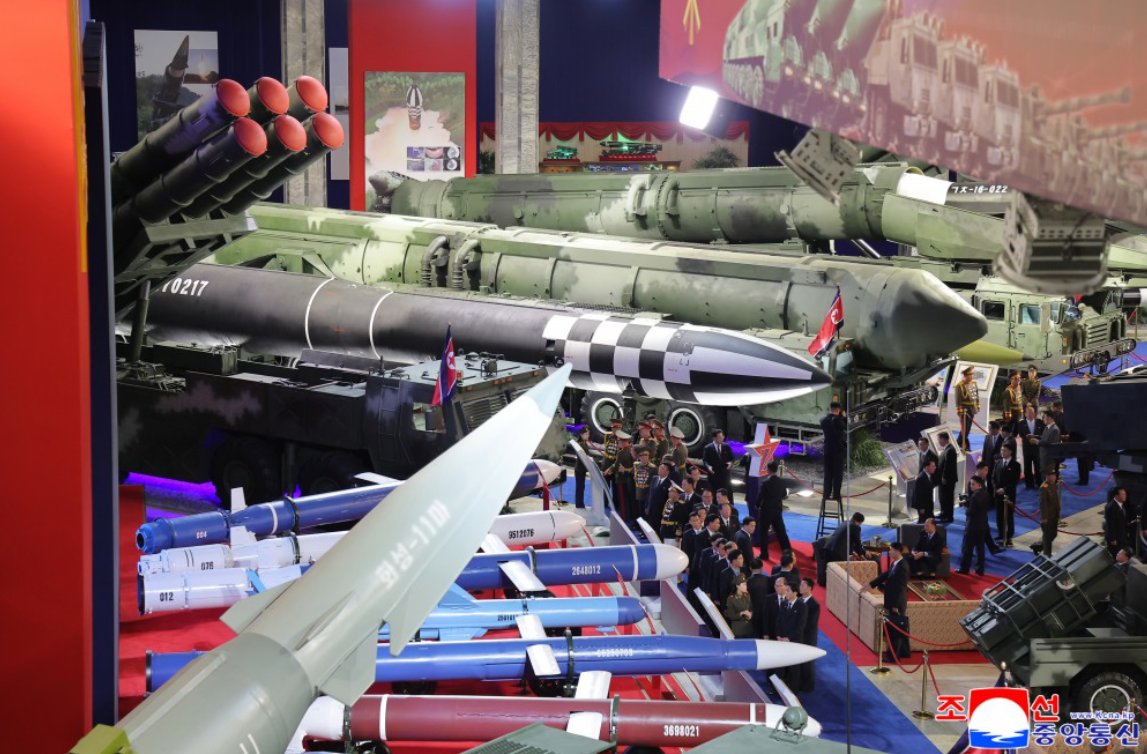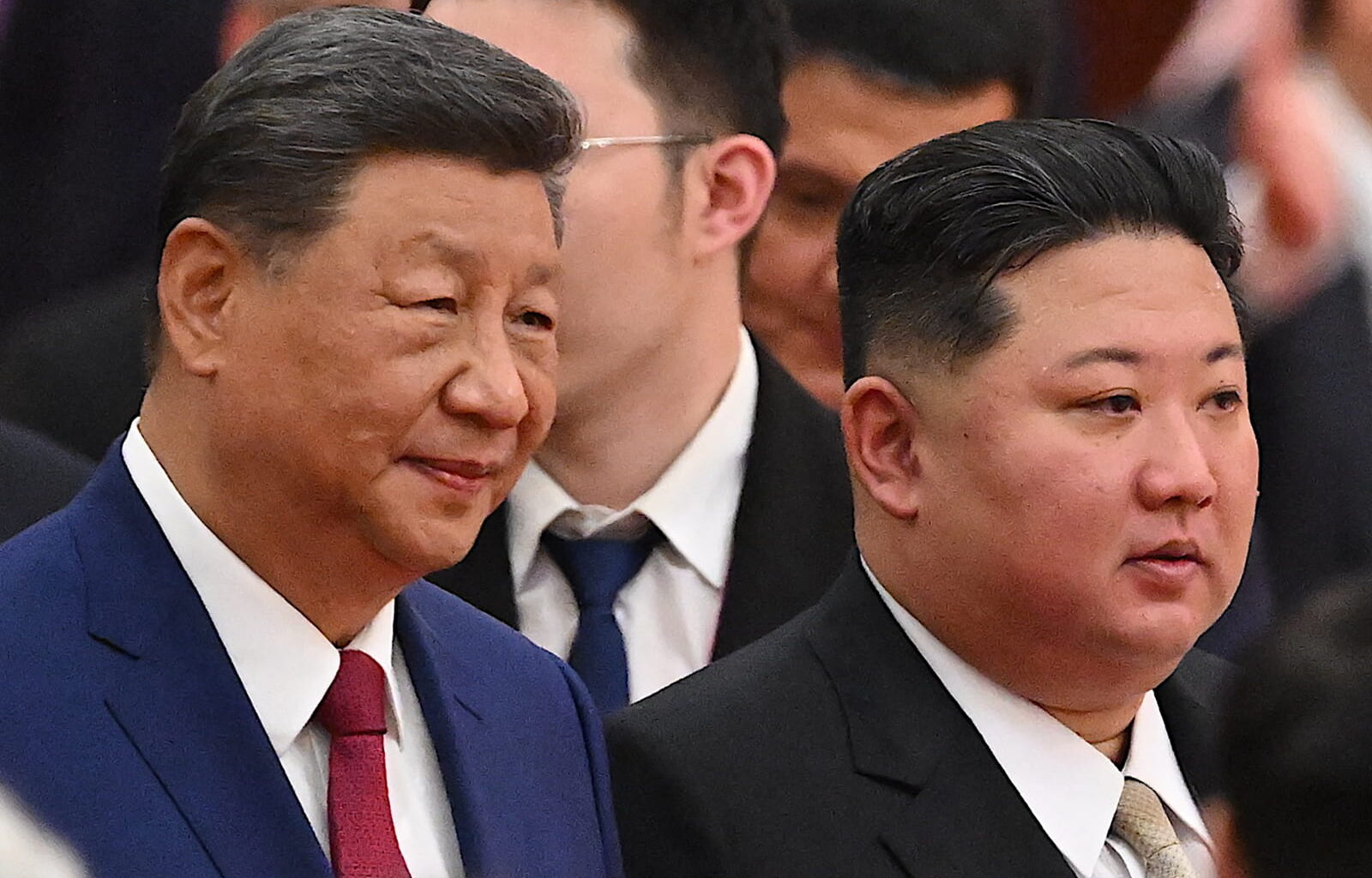In the flurry of analysis after Beijing’s recent set‑piece that placed Xi Jinping, Vladimir Putin and Kim Jong-un side‑by‑side, one shift risks being missed: China’s official readout of the Xi–Kim meeting dropped the phrase “denuclearisation of the Korean Peninsula”. For years, the wording was boilerplate in Chinese diplomacy on North Korea; its sudden absence is not a clerical quirk. Nor was it a one‑off courtesy. Beijing’s English‑language summary of Foreign Minister Wang Yi’s follow‑on talks with DPRK Foreign Minister Choe Son-hui also avoided the term, stressing “exchanges of governance experience” and socialist solidarity.
In Beijing, language equals policy. When a stock phrase disappears across multiple documents in a single month, that is a signal, not a slip.
How we got here matters. Beijing wanted a prominent Korean Peninsula presence on the Tiananmen rostrum for the 80th‑anniversary Victory Day parade. Seoul declined to send its president, dispatching National Assembly Speaker Woo Won‑shik instead; Woo even shook hands with Kim before the parade began. The choice reflected lessons from Park Geun‑hye’s controversial 2015 attendance and today’s sensitive tariff talks with Washington. In that context, Kim’s decision to attend filled a political and optics gap – turning the event into a global headline.
Pyongyang leveraged this moment to press a price for Kim’s star billing: drop “denuclearisation” from any Chinese statement. That stance was soon amplified publicly when Vice Foreign Minister Kim Son Gyong told the UN General Assembly that denuclearisation demands amount to asking Pyongyang to surrender sovereignty. In the spirit of “face” and reciprocity, Beijing accepted the adjustment.
Is this a policy revolution? Not quite. It reads better as a clarifying admission. Beijing now treats a nuclear North Korea as a practical reality to be managed rather than eliminated – at least for now.
Beijing effectively admits what its practice already reflects, that North Korea’s nuclear status is a fact to be managed, not a problem to be solved in public.
Three trends support this interpretation.
First, a tightening triangle. Moscow has moved from tacit to overt acceptance of Pyongyang’s nuclear status: Sergei Lavrov has called the denuclearisation question a “closed issue”. That position narrows China’s room to make denuclearisation the centrepiece of public messaging without disrupting trilateral optics.
Second, softer enforcement terrain. In March 2024, the UN Security Council failed to renew the mandate of the Panel of Experts that monitored DPRK sanctions – Russia vetoed and China abstained – reducing transparency and investigative capacity even as sanctions remain on the books.
Third, Pyongyang’s legal lock‑in. North Korea enshrined its nuclear policy in the constitution in September 2023, and at the 2025 UNGA declared it will never abandon the program. Beijing can dislike that reality yet still decide to live with it.

North Korean state media KCNA photo of the “Defence Development 2025 Exhibition” in Pyongyang in October
Sceptics offer three counter‑arguments.
“This was etiquette – Beijing spared a guest embarrassment.” Etiquette can explain one document; it cannot explain two separate high‑level readouts in the same month both omitting the phrase and foregrounding party‑to‑party “governance experience”. The pattern is deliberate.
“China says its stance is unchanged.” Beijing has privately told counterparts that its position remains “consistent”. But private reassurances are cheap, public omissions are costly. China chose to bear the public cost – signalling which audience it prioritises.
“Denuclearisation was always aspirational – nothing has changed.” What changed is the centre of gravity. In 2018–19, solidarity came packaged with a destination (denuclearisation). In 2025, solidarity stands alone while denuclearisation recedes into private talking points, consistent with Russia’s rhetorical acceptance and the DPRK’s legal entrenchment.
So what actually changes now?
Objectives. The long‑standing habit of outsourcing the North Korea problem to Beijing is defunct. The CVID mantra – “complete, verifiable, irreversible denuclearisation” – remains a normative goal but is untethered from present realities. Policy needs to shift from wish‑fulfilment to risk management.
Practical focus. Prioritise deterrence, crisis communications, and bounded arms‑control steps (limits on testing cadence, range, basing modes) that reduce risk without requiring Beijing to resurrect denuclearisation in public texts. Pyongyang itself has signalled it could talk if Washington drops the denuclearisation precondition – a controversial proposition, but a window policymakers must at least game out.
Enforcement and resilience. With the UN Panel of Experts gone, allied coordination on maritime monitoring, trans‑shipment, and financial compliance matters even more. The test is behaviour, not words: how Chinese authorities act around known hubs (Dandong, Ningbo‑Zhoushan, Gulf of Tonkin lanes) will tell us more than any press conference.
Regional diplomacy. Quiet Seoul–Beijing channels on accident‑prevention and border stability can reduce the odds that a DPRK provocation forces China into a costly crisis posture – especially while Seoul navigates fraught tariff discussions with Washington.
Bottom line. This is not a Chinese policy revolution so much as a policy clarification. By omitting “denuclearisation” in two high‑level readouts, Beijing effectively admits what its practice already reflects, that North Korea’s nuclear status is a fact to be managed, not a problem to be solved in public.
For Pyongyang, the move was deft. A single volunteered appearance at China’s most carefully choreographed spectacle converted into a high‑value concession in Chinese diplomatic language – a strategic accommodation between aligned regimes.
For policymakers, the implication is stark: stop outsourcing to Beijing and start resourcing a long game of containment, risk reduction, and crisis insurance.
